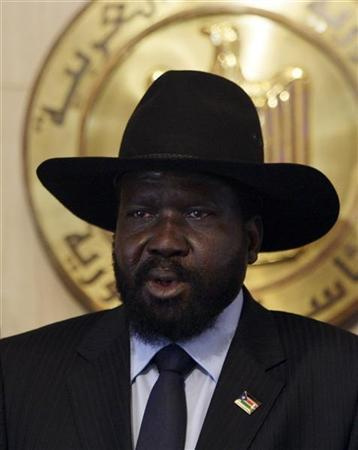 As most people are aware these days, Sudan, a country that has undergone so much hardship since it became Africa’s (geographically) largest country on January 1, 1956 is on the cusp of splitting into two. A complex issue anyway one looks at it, with economic and cultural concerns at the forefront. However, for a continent and country that seems to get so much bad press, recently some light has been shining.
As most people are aware these days, Sudan, a country that has undergone so much hardship since it became Africa’s (geographically) largest country on January 1, 1956 is on the cusp of splitting into two. A complex issue anyway one looks at it, with economic and cultural concerns at the forefront. However, for a continent and country that seems to get so much bad press, recently some light has been shining.
While southern Sudan votes on independence, there has be relatively little violence and perhaps more astonishing, a continued announcement by President Bashir that results will be upheld and a potentially new country will be recognized by Khartoum. Incredibly conciliatory words from someone complicit in the genocide a few short years ago. Of course, this proclamation has yet to be followed through upon, but at least now we know why it came about. There’s word from the Obama administration that should Bashir follow through on his promise to peacefully allow for the creation of a new southern state, the US would take Khartoum off the list of states that sponsor terrorism. Again, whether this happens or not is still questionable, but having covered the issue of indirect investment in Sudan previously, it got me to thinking what potential American companies could now become involved in the “new” Sudanese economy.
The most obvious answer would be oil companies such as Shell or Chevron, who are among those already doing business in other parts of Africa. Of course these are also two companies that have some pretty sketchy track records on the continent, particularly in places like Nigeria and Angola. Ultimately, it will come down to the new government’s ability to wield authority and conduct policy in a manner where oil revenue will contribute to not only economic, but social growth for the country. A monumentally tall task indeed. Plus, these companies involvement will not be a forgone conclusion as a number of Chinese oil companies are already highly leveraged in Sudanese oil production.
Agriculture is another sector where American/multinational corporations (MNCs) may see some action. Similar to much of Africa, 80% of the Sudanese work in the agricultural sector, producing just 1/3 of the countries GDP. Not exactly a model of efficiency. We have seen the controversial involvement of Monsanto (must be interesting to run a company that when you type into Google the first thing that comes up is “Monsanto evil”) and the introduction of genetically modified seeds on the continent (an issue which “technology will save the world” philanthropist Bill Gates, fully supports) and there are definite opportunities for equipment companies such as John Deere and Caterpillar.
While many of these MNC’s who have already been doing business on the continent may have questionable track records, often times they are using the “leeway” that the host governments give to them. It will be interesting to see not only how the potential north and south governments interact with one another on economic issues but what type of role American companies may play in the potential economic growth of both countries. Also, we may be able to determine whether economic sanctions were finally deemed effective, for US purposes anyway. Although, I could very well be getting ahead of myself. One way or another we should find out some answers in the next twelve months.
Image Credit by KWP Images via Flickr under a CC license




